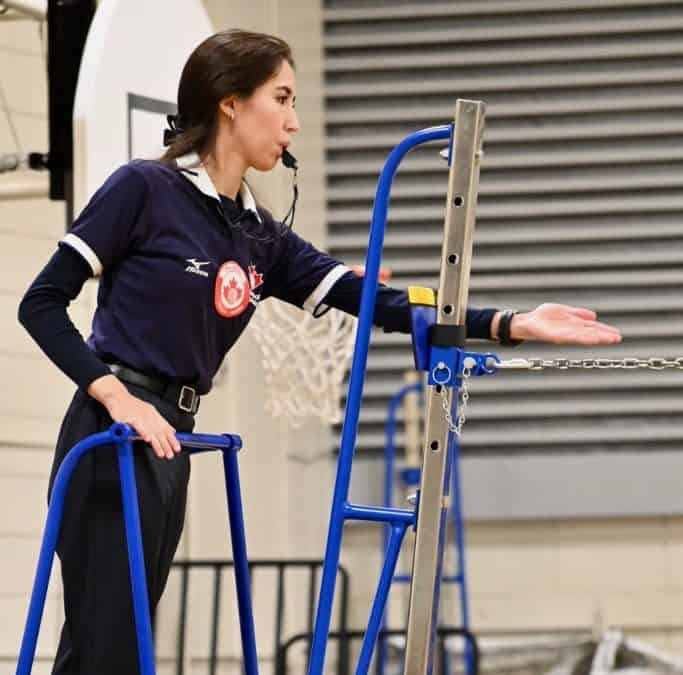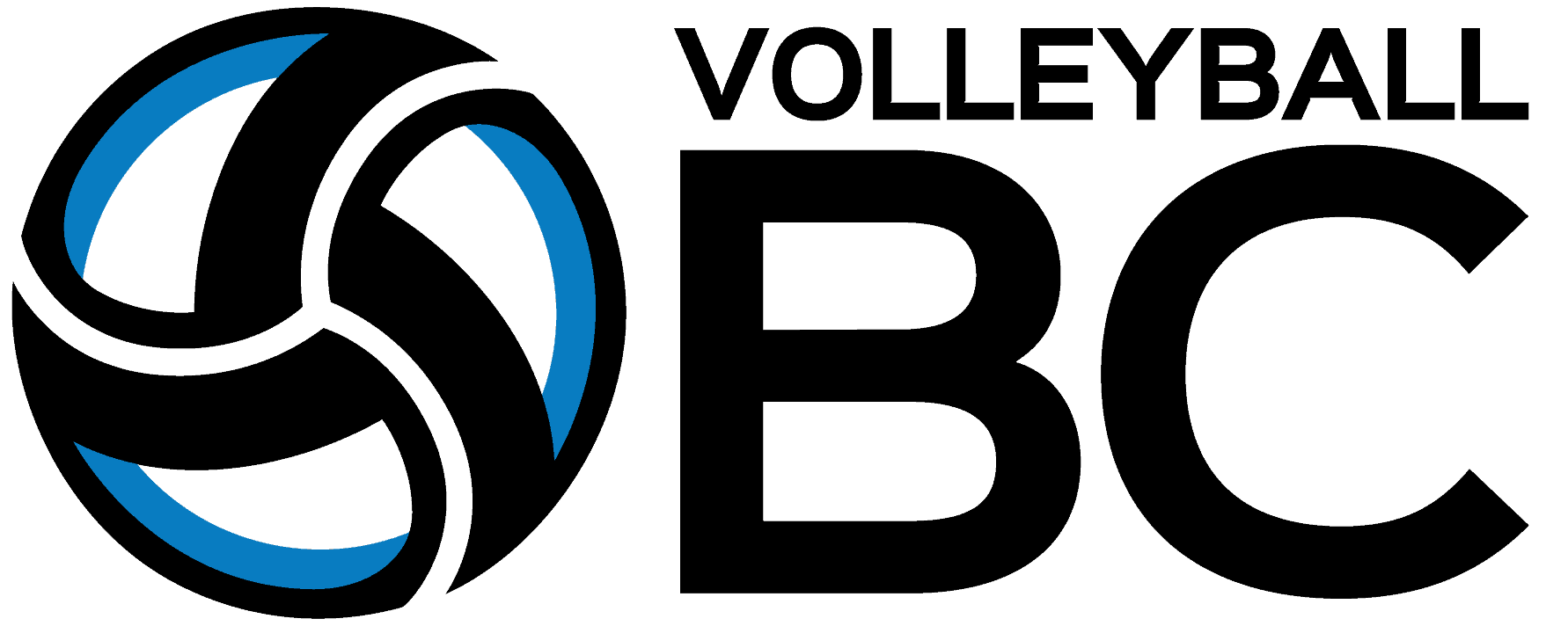
Volleyball BC made a commitment ahead of this year’s National Truth and Reconciliation Day on September 30th to learn more about the Traditional Territories on which we live, work and play and commit to develop positive relationships with local Indigenous peoples and communities. One way we’re doing so is by featuring an Indigenous coach/referee/athlete and getting to know them better in the form of a Q&A.
This month is coach and referee Kiera Eustache, who lives in Barriere (just outside of Kamloops) and is a part of the Simpcw First Nation. Here’s our interview with her:
- What inspired you to get involved in volleyball, in particular referring/coaching?
KE: I attended Barriere Secondary School in Barriere BC, and due to being a small town, there weren’t many extracurricular activities offered aside from sports, so I participated in what was offered. I played a variety of sports throughout high school, but volleyball was always my favourite. During my senior years, my cousin asked if I would be interested in helping her coach the Junior Girls team. I found you learn so much more through also teaching the subject, so it was a great experience for me. After graduating, my past teacher and coach, Ashley Lowndes (nee Shannik) invited me to start the process of becoming a volleyball referee for highschool matches. I did most of my training with Ashley and her older sister, Val Shannik. Having previously had both sisters as coaches and teachers made transition into reffing much easier. As Barriere is a rural community, located about an hour drive away from Kamloops, it can be difficult to find officials that are willing to travel to the school. I wanted to be able to provide my services to my old high school and ensure I was putting forth my best effort for future student athletes.
- Why is it important for us to have female-identifying leaders in volleyball?
KE: I believe a large part of being a good leader and role model is being relatable. Those looking up to you need similarities they can identify with that will convince them they can fill the same positions or accomplish similar goals. As I find sports are commonly overwhelmed with male-identifying leaders, this can be discouraging to young female-identifying athletes, who might believe they don’t have a place, simply because they are a girl. By having female-identifying leaders in volleyball, we are creating a safe and open space for many more upcoming athletes, coaches, and referees. I’m very proud to say Barriere Secondary currently has four indigenous female coaches coming from my community of Simpcw First Nation, including myself. In the past there has been up to six Simpcw female identifying coaches at Barriere Secondary for the sports season.
- As a self-identifying Indigenous Female Coach/Referee what piece of advice would you like to give girls or women who are looking to become leaders in sport
KE: Know that you belong.
A big part of being a referee is telling other people they’re wrong, which they won’t always like. Learn to trust in yourself and stand by your decisions. If you feel that you’re losing confidence, remember that you’re where you are for a reason, and there is always someone who believes in you. Always offer support to your fellow female identifying colleagues, and you can trust them to be in your corner.
Discover the traits that best allow you to embrace your femininity and indigenous ancestry and be proud of them. Showing pride in things others may not like in themselves creates a safe space and makes you a reliable role model. Trust is one of the main foundations of leadership. Believing that you belong in sport, and forging your own space will convince others there’s a spot for them as well. Consistently reflect back to your own youth and what you needed or wished you had in a coach or referee, and try your best to be the kind of person that can fulfill those needs in others.
- Who is your Female Sport inspiration or Role model
KE: I’ve been very fortunate to grow up surrounded by female role models, not only in sport but all aspects of my life. Ashley and Val have really helped me navigate the volleyball world, and I feel like I owe a majority of my progress as a volleyball referee and a sports coach to them. Often, when I’m faced with challenges as a coach or a referee, I ask myself, “What would Ashley or Val do?”. At Barriere Secondary, I’ve had the pleasure of starting my coaching journey with my older cousins, Rachael Bowser, Tiffany Bowser, and Angie Rainer. I’m very thankful for all the connections I had coming into the sports world as a coach and referee, and I recognize all the advantages I’ve been lucky to receive.
Stay tuned to for more great stories from leaders like Kiera. If you know of an Indigenous athlete, coach or referee who is a leader and doing outstanding work for their community, please email us at [email protected].
